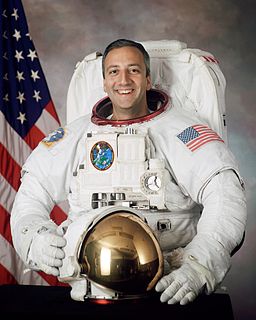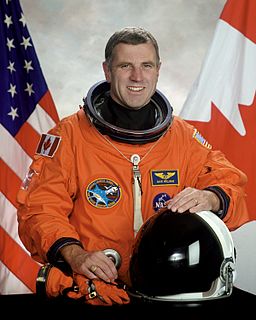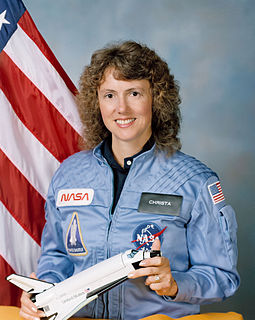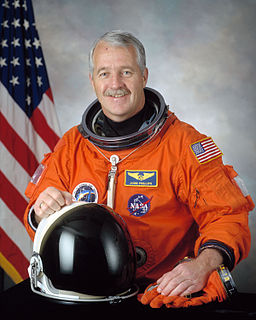A Quote by Simon Sinek
When I was a kid, I was a bit of a space geek. I loved the space program and all things NASA. I would read books about our solar system; I had pictures of the Space Shuttle on my bedroom wall. And yes, I even went to Space Camp.
Related Quotes
I had always been interested in the space program, and I didn't know if I could be an astronaut like I'd dreamt about when I was a little kid - to me it sounded kind of silly, someone grow up to be an astronaut - but, when I was in my 20s, I thought maybe I can get a job with NASA or a contractor, do something with the space program.
In 2009 I went up on the space shuttle. I was in space for 16 days and docked at the space station for 11 days. The entire crew did five space walks, of which I was involved with three of them. When you're doing a space walk, you always have a buddy with you. It's a very dangerous environment when you're doing a space walk.
On my second space walk, I was riding the Canadarm, heading down toward the payload bay of the space shuttle, and I could see the space shuttle highlighted against the Earth in the background, and there was this black, infinite, hostile void of space. I remember looking down at the Earth and thinking, "Beneath me is a 4½-billion-year-old planet, upon which the entire history of the human species has taken place." That was an incredibly humbling moment, and I had a bit of an epiphany.
There's a huge amount of pressure on every astronaut, because when you get right down to it, the experiments that are conducted on a space flight, or the satellites that are carried up, the work that's to be done, is important and expensive work, and you are up there for a week or two on a Space Shuttle flight. The country has invested a lot of money in you and your training, and the Space Shuttle and everything that's in it, and you have to do things correctly. You can't make a mistake during that week or two that you're in space.


































